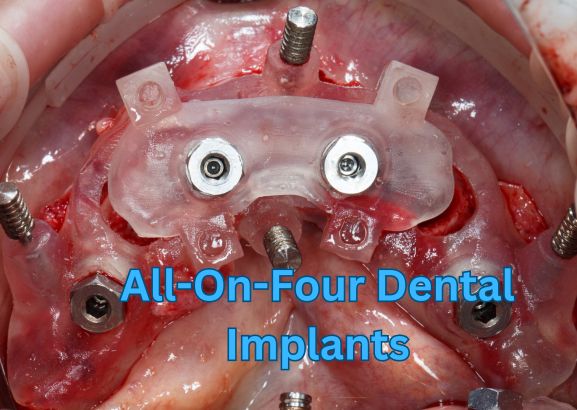Best Treatment for Missing Teeth: Top Proven Options
Last Updated on 6 months by DR. ALBIN SIPES
The best treatment for missing teeth is dental implants, which are artificial tooth roots that are surgically placed into the jawbone to support a replacement tooth or bridge. Dental implants offer a long-term solution, as they look, feel, and function like natural teeth, and can last a lifetime with proper care.
They also help preserve the integrity of the jawbone and prevent bone loss. With dental implants, patients can enjoy improved aesthetics, better speech, enhanced chewing ability, and increased self-confidence. Dental health plays a crucial role in our overall well-being, and missing teeth can have a significant impact on our daily lives.
Whether it’s due to injury, decay, or other dental issues, finding the best treatment for missing teeth is essential. This article will explore the most effective solution for replacing missing teeth: dental implants. We will delve into their benefits, the procedure involved, and why they are considered the gold standard in tooth replacement. With dental implants, you can regain a beautiful, functional smile and enjoy a better quality of life. So, let’s dive into the world of dental implants and discover the transformative power they hold.

Introduction To Missing Teeth
Missing teeth can be a common issue for many people, with a variety of causes ranging from poor oral hygiene to accidents and injuries. Regardless of the cause, missing teeth can have a significant impact on both oral health and aesthetics. The loss of a tooth can cause adjacent teeth to shift, leading to bite problems and potential jaw pain. Additionally, missing teeth can affect self-esteem and confidence, causing individuals to avoid smiling or speaking in public. Fortunately, there are several treatment options available for those with missing teeth, including dental implants, bridges, and dentures. Each option has its own benefits and considerations, so it’s important to consult with a dental professional to determine the best treatment plan for your specific needs.
| Common Causes of Tooth Loss: | Impact on Oral Health and Aesthetics: |
|---|---|
| Poor oral hygiene | Adjacent teeth may shift, leading to bite problems and potential jaw pain. |
| Gum disease | Self-esteem and confidence may be affected, causing individuals to avoid smiling or speaking in public. |
| Accidents or injuries | Difficulty chewing and speaking may occur. |
Dental Implants
When it comes to treating missing teeth, dental implants are considered the best solution. There are two main types of implants: endosteal and subperiosteal. The procedure involves surgically placing the implant into the jawbone, followed by a period of recovery. Longevity and care are important factors to consider, as implants can last a lifetime with proper maintenance. Regular oral hygiene and dental check-ups are essential for the longevity of the implants.
Fixed Bridges
Fixed bridges are an effective solution for missing teeth, providing stability and a natural appearance. By bridging the gap between existing teeth, this treatment restores functionality and enhances your smile. With proper care, fixed bridges can offer a long-term dental solution.
| Bridge Structure and Materials | Installation Process | Maintenance and Hygiene |
|---|---|---|
| Fixed bridges are made up of two or more crowns for the teeth on either side of the gap and a false tooth/teeth in between. The false teeth can be made of porcelain, alloys, gold, or a combination of these materials. | The installation process of fixed bridges involves the dentist preparing the adjacent teeth to support the bridge. The dentist then takes an impression of the prepared teeth and sends it to a dental laboratory for the bridge to be fabricated. Once the bridge is ready, the dentist cements it in place. | Maintenance of fixed bridges includes regular brushing, flossing, and dental check-ups. Avoiding hard and sticky foods and not using teeth as tools can help prevent damage to the bridge. Proper hygiene can help prolong the lifespan of the bridge. |

Removable Partial Dentures
Removable Partial Dentures are a common treatment option for missing teeth. They are designed to provide both functionality and comfort to patients. The design of these dentures allows for easy insertion and removal, making them convenient for daily use. They can be adjusted to ensure a proper fit and optimal comfort for the wearer.
There are several advantages and disadvantages to consider when it comes to removable partial dentures. On the positive side, they are a cost-effective option compared to other treatments like dental implants. They also require less time for fabrication and can be easily repaired if damaged.
However, there are some drawbacks as well. Removable partial dentures may not provide the same level of stability as dental implants, and some patients may experience difficulty with speaking or eating initially. Additionally, they require regular cleaning and maintenance to prevent the buildup of bacteria.
In conclusion, while removable partial dentures offer a viable solution for missing teeth, it is important to consult with a dental professional to determine the best treatment option for your specific needs.
Complete Dentures
Complete dentures are a common solution for missing teeth. They are suitable when the majority or all teeth are missing. Customization and fit are crucial for ensuring comfort and functionality. Dentures should be considered when natural teeth are causing pain or affecting daily life. The process involves making precise measurements and impressions to create a personalized fit. Patients may experience an adjustment period while adapting to speaking and eating with dentures. Regular follow-up appointments are important for evaluating fit and making any necessary adjustments. Proper care and maintenance are essential for prolonging the lifespan of dentures. Overall, complete dentures offer a reliable option for individuals seeking to restore their smile and improve their quality of life.
Resin-bonded Bridge
The resin-bonded bridge is a highly effective treatment for missing teeth. It offers a durable and natural-looking solution that securely bonds the artificial teeth to neighboring healthy teeth, restoring both functionality and aesthetics. Say goodbye to gaps and hello to a confident smile.
| Resin-Bonded Bridge |
| Ideal Candidates |
| Procedure Overview |
| Durability and Aftercare |
Teeth In A Day
Teeth in a Day offers a revolutionary solution for missing teeth. This procedure allows patients to regain their smile quickly. The main advantage of Teeth in a Day over traditional methods is the speed of the treatment. This treatment is suitable for individuals looking for a fast and convenient way to restore their smile. It is essential to consider the overall oral health and bone density before opting for this procedure.
Comparing Treatment Options
Missing teeth can lead to various dental problems, such as difficulty in chewing and speaking. Treatment options include dental implants, bridges, and dentures. Each option has its own advantages and disadvantages, and it is important to compare them to determine the best treatment for missing teeth.
| Cost-Benefit Analysis | Long-Term Success Rates | Decision-Making Factors |
| Compare costs against benefits for each treatment option. | Evaluate success rates over extended periods post-treatment. | Consider factors like durability, aesthetics, and maintenance. |
Maintaining Oral Health After Treatment
After receiving the best treatment for missing teeth, it is crucial to maintain oral health. This involves practicing daily oral hygiene habits, attending regular dental check-ups, and making necessary lifestyle adjustments.

Frequently Asked Questions
What Is The Best Option For Missing Teeth?
Dental implants are the best option for missing teeth. They look and function like natural teeth, providing a long-term solution.
What Is The Cheapest Option To Replace Missing Teeth?
The cheapest option to replace missing teeth is partial dentures. They are removable and cost less than implants or bridges. However, they may not be as comfortable or aesthetically pleasing as other options. It’s important to discuss all options with your dentist to find the best fit for your needs and budget.
How Can I Cover My Missing Teeth?
To cover missing teeth, you have several options. One popular choice is getting dental implants, which are artificial tooth roots that are surgically placed into your jawbone. Another option is getting a dental bridge, which uses adjacent teeth to support a false tooth.
Dentures are also a common choice, as they are removable and can replace multiple missing teeth. Consulting with a dentist will help determine the best solution for you.
Which Treatment Plan Is The Best Option For A Missing Tooth?
The best treatment plan for a missing tooth is to consider dental implants. They provide a natural-looking and long-lasting solution. Other options include bridges and dentures, but dental implants offer the most permanent and aesthetically pleasing results.
Conclusion
Finding the best treatment for missing teeth is essential for maintaining oral health and overall well-being. Whether you opt for dental implants, bridges, or dentures, it’s crucial to consult with a professional to determine the most suitable option. With the right treatment, you can restore your smile and confidence.


